Research
Current research projects
In our current projects, bifunctional transition metal complexes of redox-active ligands, in particular cyclopentadienone derivatives of ruthenium, serve as catalysts. A pronounced metal-ligand cooperation enables remarkable catalytic conversions of bi- or polyfunctional substrates with high selectivity. In addition, electronic, steric and stereochemical aspects can be tuned via the substituents of the ligand system. The readily available propargyl alcohols are particularly suitable substrates. The central intermediates of the catalytic cycles are π-complexes, alkenyl, alkynyl, vinylidene and allenylidene species.

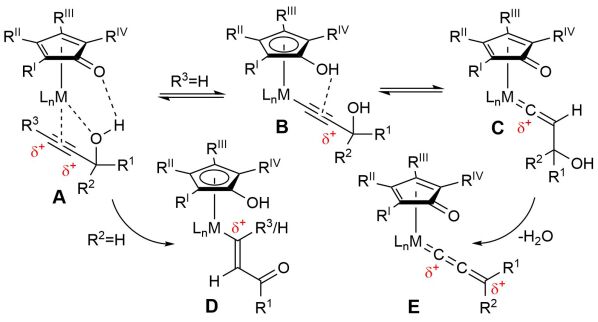
Activation of propargyl alcohols by redox-coupled cyclopentadienyl complexes.
In the presence of suitable nucleophiles, the specifically addressable C3-fragments A-E are converted into various addition and rearrangement products as well as various carbo- and heterocycles with regeneration of the initial catalytically active species.
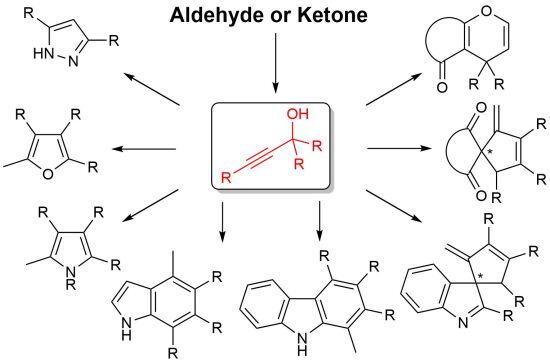
Ruthenium catalyzed synthesis of diverse carbo- and heterocycles.
These catalytic transformations form the basis of multi-component cascade processes for the selective construction of highly complex polycyclic compounds in a one-pot process. The reactions are applied in the context of natural product synthesis and to the generation of natural product-inspired drug candidates from simple and readily accessible starting materials.
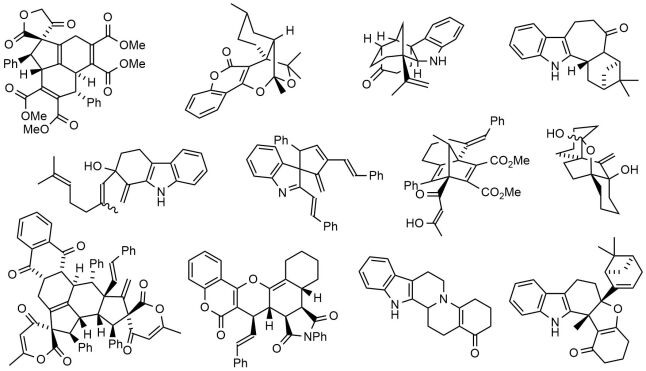
One pot synthesis of natural product-inspired compounds via ruthenium catayzed cascade processes (selected products).
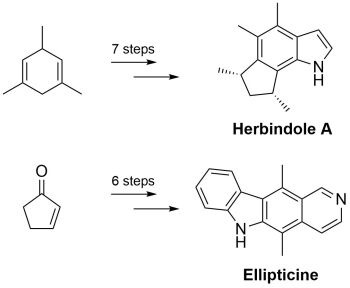
Applications in the total synthesis of bioactive alkaloids.
Another research project aims to develop atom-economical processes using new low-valent iron or ruthenium complexes. Iron catalysts offer enormous economic and toxicological advantages over the variously applied noble metal catalysts. Nevertheless, homogeneous iron catalysis has long been neglected. It is only recently that catalysis research has focused on iron, especially in the field of homogenous redox catalysis. Our investigations regarding the catalytic behavior of rationally designed iron and ruthenium complexes reveal promising activities and selectivities in hydrogen transfer reactions, borrowing hydrogen catalysis, and catalytic oxidation without an H-acceptor.
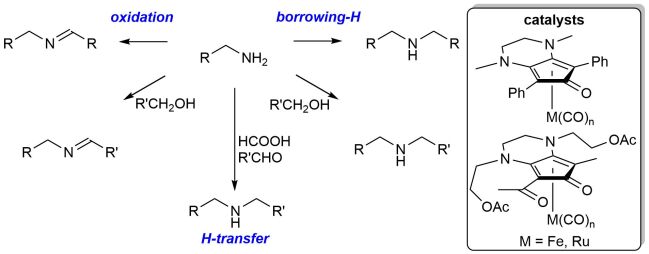
Iron and ruthenium catalyzed hydrogen transfer.